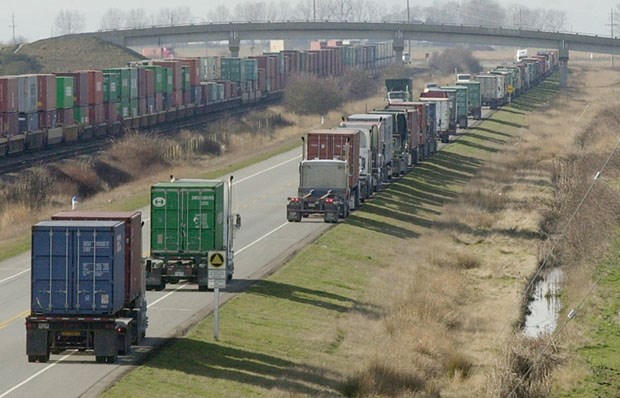Port Metro Vancouver will begin a last round of consultation to finalize details of its new truck licensing system.
The new policy, expected to be finalized by late November, is one of the many changes to the sector as a part of the Joint Action Plan announced by the federal and provincial governments in March.
The goal of the new system is to balance the number of registered trucks with the amount of available work to bring stability to port operations.
"The current licensing system is not responsive to the normal fluctuations of supply and demand in the marketplace," said Peter Xotta, vice president, planning and operations for Port Metro Vancouver.
"There are too many trucks registered for the work that is required, which has caused intense competition between trucking companies, not enough work for many truckers and reports of the undercutting of agreed rates."
The truck licensing system licenses container trucking companies that serve the port. The registered trucks under each license transport marine containers, which hold import and export goods, to and from the port to warehouses, distribution centres and retailers off port property.
In a report released jointly by the federal and provincial governments Wednesday, Vince Ready and Corinn Bell noted an understanding among stakeholders of the need for change to the licensing system.
Detailed analysis has been done based on GPS data available from all 2,000 trucks currently registered to serve the port. Preliminary findings indicate there are more trucks registered than required in this market.
Final details of the new system are subject to another round of consultation with container trucking stakeholders. When the final policy is announced later this year, all current license holders will have the opportunity to seek participation in the new system.
Among the details will be a program to ease the transition by assisting owner-operators that do not meet the requirements for entry under the new policy.
It is expected the new system will become effective next February.



